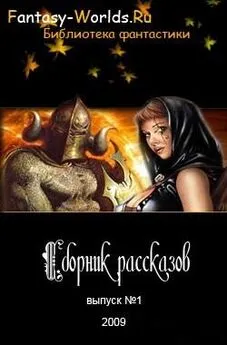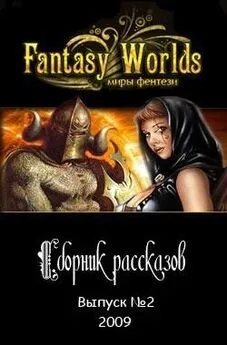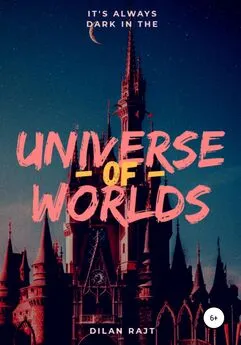Пользователь - WORLDS END
- Название:WORLDS END
- Автор:
- Жанр:
- Издательство:неизвестно
- Год:неизвестен
- ISBN:нет данных
- Рейтинг:
- Избранное:Добавить в избранное
-
Отзывы:
-
Ваша оценка:
Пользователь - WORLDS END краткое содержание
WORLDS END - читать онлайн бесплатно полную версию (весь текст целиком)
Интервал:
Закладка:
France had been at war for four bloody years, had suffered grievous wounds, and now stood with one foot upon her deadly foe. During these four years the people of France had been under a complete censorship; officials and military men between them had decided not merely what should be done but what should be said and thought. Now suddenly it was proposed to lift this censorship and turn people loose to reveal secrets and criticize policies - in short, to say what they pleased, or what the enemy might hire them to say. "What?" cried the shell-shocked officials. "Open the sessions of the conference, and let newspaper men hear the wrangles of the diplomats, and tell the whole world about national ambitions and demands? If you do that, you will have a series of new wars on your hands - the Allies will be fighting among themselves!"
To this the believers in open covenants openly arrived at replied that the affairs to be settled by the conference were the affairs of the people, and the people had a right to know what was being planned and done. Democracy could not function unless it had information. The only way of lasting peace was to turn the conference into a means of education, an open forum where problems were threshed out in the sight and hearing of all.
So the debate raged; and like everything else with which the assemblage dealt it was settled by compromise and evasion. It was agreed that the press should be admitted to the "plenary sessions"; whereupon these were turned into formal affairs to ratify decisions already worked out by the so-called "Council of Ten." When the press took to clamoring against the secrecy of the "Council of Ten," the real work was transferred to a secret "Council of Four." Presently this became a "Council of Three," and this holy trinity not only told no pressmen what it was doing, but to make sure that they couldn't find out, it employed but one secretary and kept but one record.
VI
Of course only a small portion of the people of Paris were occupied with the Peace Conference. The common people, mostly women and elderly men, worked at their daily tasks, and gave their thoughts to getting food with prices steadily rising. The well-to-do had their cares also, for it was a violent world, exposed to sudden unforeseeable changes. Only speculators throve; and whenever Robbie met his son he had stories to tell about what these were doing.
The munitions industry was shot to pieces, reported the salesman. Budd's had been forced to close down; all that magnificent plant which had been like a beehive - its chimneys were empty and its gates were locked. "But I thought we still had contracts with the government!" exclaimed the youth. The father answered that it didn't pay to run big plants for a few orders, and they had canceled the contracts on the basis of part payments.
"But what will all those working people do, Robbie?"
"I hope they saved their money. For us the war ended too soon. Nobody could foresee that Germany, was going to collapse like that."
"We still have those fine new plants, haven't we?"
"What are plants if you can't run them? They're just a drain; upkeep, insurance, and taxes - the government soaks you as hard whether you're making anything or not."
"I never thought of that," confessed Lanny.
"Your grandfather isn't thinking about anything else very much."
Robbie was sending home long reports, mostly without a gleam of hope. There were plenty of people who wanted to go on fighting, but where were they to get the money? Who would want to finance new wars? And, anyhow, the fighting would be done with munitions already manufactured. There were mountains of it piled up all over France, and on the Italian front, and the Balkan front, and the Palestine front - everywhere you looked on the map. It could be bought for almost anything you wanted to offer.
"I've been trying to interest Father in buying some as a speculation," added Robbie. "But he says we're not going into the junk business. I can't very well do it myself while I'm the European sales agent of our firm."
In Lanny's mind was a vision of that depressing old Colonial house in Newcastle, with a worried and overworked businessman sitting at a desk piled high with papers - and having in one drawer a bundle of pamphlets setting forth the Confession of Faith of his grandfather. "What does he expect to do, Robbie?"
"We've got to figure out ways to turn some of the plants to peacetime uses. And that's going to cost a lot of money."
"Well, we made it, didn't we?"
"Most of it was distributed as dividends, and people aren't going to put it back in unless we can show them new ways of making profits."
"Surely, Robbie, there's going to be a demand for every sort of goods! People are clamoring for them all over."
"It doesn't matter how much they clamor, unless they've got money. The ones that have money daren't risk it when there's so much uncertainty - and when those in authority can't make up their minds about anything. We've got a President who spent his time studying Latin and Greek and theology when he ought to have been learning the elements of finance and credit."
Robbie said that Clemenceau and Lloyd George were every bit as ignorant about economic questions; he wanted businessmen and financiers called in to advise. With one-third of Europe in revolution, and another third hanging on the brink; with tens of millions of people not knowing where to get their next day's bread; with trade disorganized, railways broken down, river transport sunk, harbors blockaded, and millions of men still kept out of production, liable to revolt and go home, or to start shooting one another - the man to whom they all looked for guidance had brought a shipload of specialists in geography and history and international law, and only a handful who knew finance, production, or trade.
VII
The telephone rang in Lanny's room, and he heard a voice, speaking English with a decided foreign accent: "Can you guess?" Someone in a playful mood; he kept on talking, and Lanny, who had heard so many kinds of accents in his young life, tried his best to think, but nothing stirred in his memory. "Five years ago," said the stranger. "On a railroad train." Lanny groped in his mind. "I got on at Genoa," said the voice; and suddenly a light dawned, and the youth cried: "Mr. Robin!"
"Johannes Robin, Maatschappij voor Electrische Specialiteiten, Rotterdam - at your service!" chuckled the voice.
"Well, well!" said Lanny. "What are you doing here?"
"A little business, which will be a secret until I see you."
"And how are the boys?"
"Fine, Lanny, fine - do I call you Lanny, even though you are grown up to a young gentleman?"
"You bet you do, Mr. Robin. I'll never forget the favors you have done me." In the course of the last four years Mr. Robin had mailed six or eight letters to Kurt in Germany, one of them only a week or two previously. That was how the trader knew that Lanny was in Paris, and his address.
Of course Lanny wanted to see that friend, even busy as he was with all the affairs of Europe. "I'm going to have lunch with my father," he said. "Wouldn't you like to join us?"
"Sure, I like to meet your father," said the dealer in electrical gadgets. Lanny told him where to come.
Johannes Robin was somewhat stouter than Lanny remembered him; he had spent money on his clothes and looked the picture of prosperity. He was the same exuberant fellow, who liked to talk about himself; but Lanny, more observant now, got the feeling that he was not entirely at ease. He wanted very much to please these two rich Americans, and was never quite sure whether he was doing it. His handsome dark eyes moved from Lanny's face to Robbie's and back again, and his smile was deprecating and hesitant, as if to say: "I hope you don't mind if I am so proud to know you."
He was genuinely glad to see the youth and exclaimed over how big he had got. Of course he wanted to tell about those two boys at home, and he had some more snapshots of his family group, which he presented apologetically - they wouldn't take up much room. They talked about Kurt Meissner; Lanny had had no answer to his last letter, and was worried about it. A captain of artillery could have been killed during the last days of the war just as well as at any other time. Robbie said that the Americans had been attacking just as hard between seven in the morning when the armistice was signed and eleven when it went into effect.
With Lanny's father Mr. Robin became the businessman, who had traveled over Europe and knew its affairs, and could tell interesting stories about money-making in wartime. From his safe retreat in the Low Countries he had made quite a lot, in spite of the British blockade; nothing to compare with Mr. Budd's affairs, he said modestly, but enough to constitute success for one who had been born in a ghetto hut with a mud floor. Robbie liked that attitude - he liked people to be what they were and not pretend to be something else; so he and the Jewish importer got along pleasantly. They agreed that business would pick up again, if only the diplomats would quit their stalling; they agreed on many things that ought to be done - and Lanny listened, picking up bits of information which he could take back to his chief, to atone for taking a couple of hours off in the middle of a busy day.
VIII
Before those two had finished their bottle of wine they knew each other well enough for Jascha Rabinowich, alias Robin, to make a confession. " Mr. Budd, I have some ideas in my head that just don't let me rest. You know the feeling perhaps: there is money to be made, so much money, and I see how it can be done at once, but later on it will be too late."
Yes, Robbie knew the feeling, and gave permission for his new acquaintance to tell him what he had in mind. It turned out to be the same thing that had been interfering with Robbie's sleep: all that mass of munitions and other supplies which had been manufactured at enormous cost, and which were now lying about - "Have you seen them, Mr. Budd?"
Robbie smiled. "My son sees them on the Place in front of his hotel." It was packed with rows of cannon of every type, howitzers, mortars, field-guns - captured German pieces with the marks of war on them, and now rusting in the rain.
"It is terrible, Mr. Budd, all those goods which cannot even be covered up: shells that they were ready to fire, boots they were going to wear. Now they do not know what to do with it all. To take things back to England - that is possible; but all the way to America - will it pay the cost of crating and shipping?"
"We have been figuring on it, and it won't," said Robbie Budd. "The army has a commission here, trying to dispose of the stuff."
"Well, Mr. Budd, I am a man who knows how to sell things. I know dealers all over Europe. And I have ideas. I wake up in the middle of the night, because one has stung me, like it might be - what is it? - abeille - "
"A bee," said Lanny.
"For example?" said Robbie.
"Well, hand grenades; there are millions of them - "
"We made a quarter of a million for our army."
"And now they are somewhere out in the mud of Lorraine. You know what they look like; I don't need to describe them."
"What would you do with them?"
"First I unload them. I have a mass of black powder, which I put up in bags. I know a man who supplies mining companies in Chile, Peru, all those countries. Then I cut off the handles; tomorrow I will find something to do with them. Then I have a little round metal box; it has a pretty shape, it sits up on end; I cut a slot in the top, and there you are."
"What is it?"
"It is a children's bank, where they drop their pennies, their pfennigs, their sous, their soldi - in every country they have little coins for the poor."
Читать дальшеИнтервал:
Закладка:




![Галина Романова - Лицензия на happy end [litres]](/books/1058996/galina-romanova-licenziya-na-happy-end-litres.webp)
